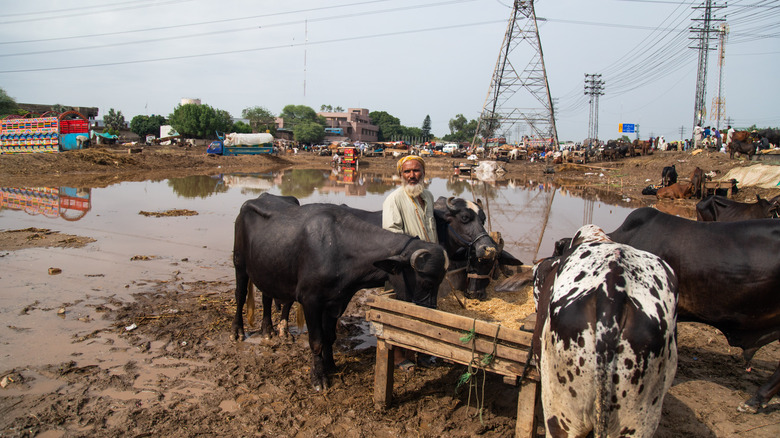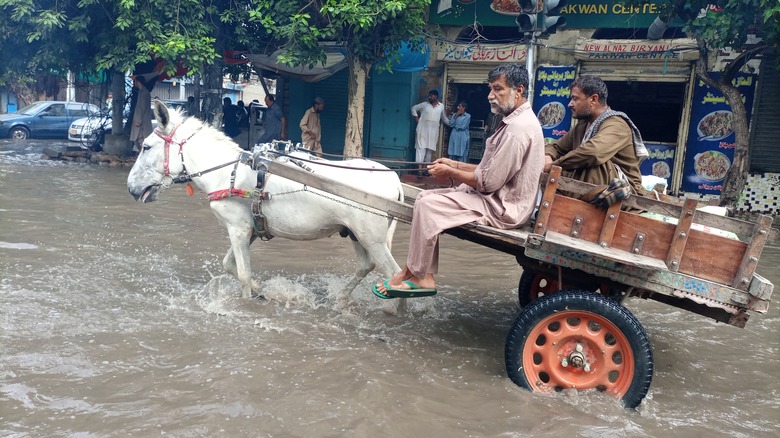Floods Are Devastating Pakistan's Food Supply
Wild weather continues to impact the food supply in countries across the world. Now Pakistan is reeling from three months of ceaseless rain, killing over 1,100 people and submerging farmland, which is leading to food shortages (via New York Times).
This comes while the country struggles with a spike in prices due to the war in Ukraine. Earlier this year, Pakistan's Federal Planning Minister requested citizens cut down on their tea consumption, an unpopular stopgap measure to curb the runaway inflation. Moreover, a devastating heat wave lasting three months already hurt local crops, reports The Conversation. Al Jazeera explains while the region's crops are used to the area's high heat, this year's temps soared early, impacting wheat growth and lowering mango production by nearly 60%
While extreme rain is a regular part of Pakistan's monsoon season, this year's was considered unprecedented, with some areas receiving 500% more rainfall than they see all year (via Al Jazeera). Compounding the problem, ice melt from the glaciers contributed to higher water levels in rivers and lakes. According to NPR, Pakistan has over 7,200 glaciers, the most in the world save for the Arctic and Antarctic. Because of the heating planet, glaciers melted earlier this year, so monsoon and ice melt seasons collided, causing unimaginable destruction.
Unprecedented rainfall devistates Pakistan's farmland
According to CGTN, Pakistan Foreign Minister Bilawal Bhutto-Zardari confirmed the majority of the country's crops — 80-90% — were wiped out due to flooding. It's estimated that 65% of staple crops like rice, cotton, wheat, and onion were washed away (via The Print). Livestock wasn't spared either. With two million acres of farmland covered by water, the UN Office for the Coordination of Humanitarian Affairs says 800,000 heads of livestock were killed.
The Print reports neighboring Iran and Afghanistan sent truckloads of relief supplies. Fifty trucks filled with fresh tomatoes and onions rolled into Pakistan, with more expected to cross the border in the coming days. The Indian news outlet points out that Afghanistan is also on the precipice of food disaster, particularly since it relies on the roadways through Pakistan for imports of food and other necessities. Many of these roads were damaged by the floods, leaving them impassable.

